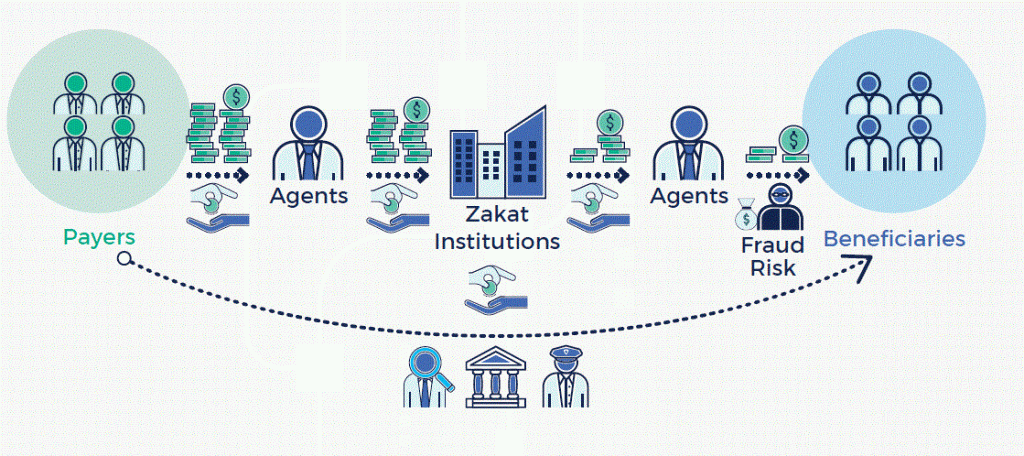Problem and solution:
There are many problems that charity donation faces in the world, and this translates into less formal collection processes and, therefore, a lower ability to use the donation as an effective poverty alleviation tool.
- Inefficiency and lack of proper governance are among the most important challenges facing many charity organizations around the world.
- Lack of coordination between humanitarian organizations and lack of transparency
- In addition to the donor’s feeling that the full amount has not reached the beneficiaries
ZAKAT-PAY will give Donors the possibility to choose the beneficiaries, NGOs, and type of donation (cash or material), buy the material donation from the merchant, and track the donation received by the beneficiaries who are registered through NGOs

One of the most important problems facing humanitarian organizations (NGOs), is officials (NGOs) who collect charity, identify beneficiaries and distribute it to them. In addition to the storage and transportation of in-kind materials, as well as the problem of transparency in requesting quotations from merchants to purchase those materials, as well as the method of selecting eligible recipients, all these problems can be overcome by the presence of the Zakat-Pay system, which will theoretically save effort and due diligence costs for individuals looking for eligible recipients Those who meet the conditions desired by the donor. Charity institutions should also play a vital role in countries’ fight against hunger and poverty, and in the pursuit of other noble social goals. However, charity organizations face many challenges in realizing their potential.
New technologies, including the digital wallet, seem to offer promising solutions to such problems. However, like any other technology, ZAKAT-PAY system is the solution to managing charitable work.
